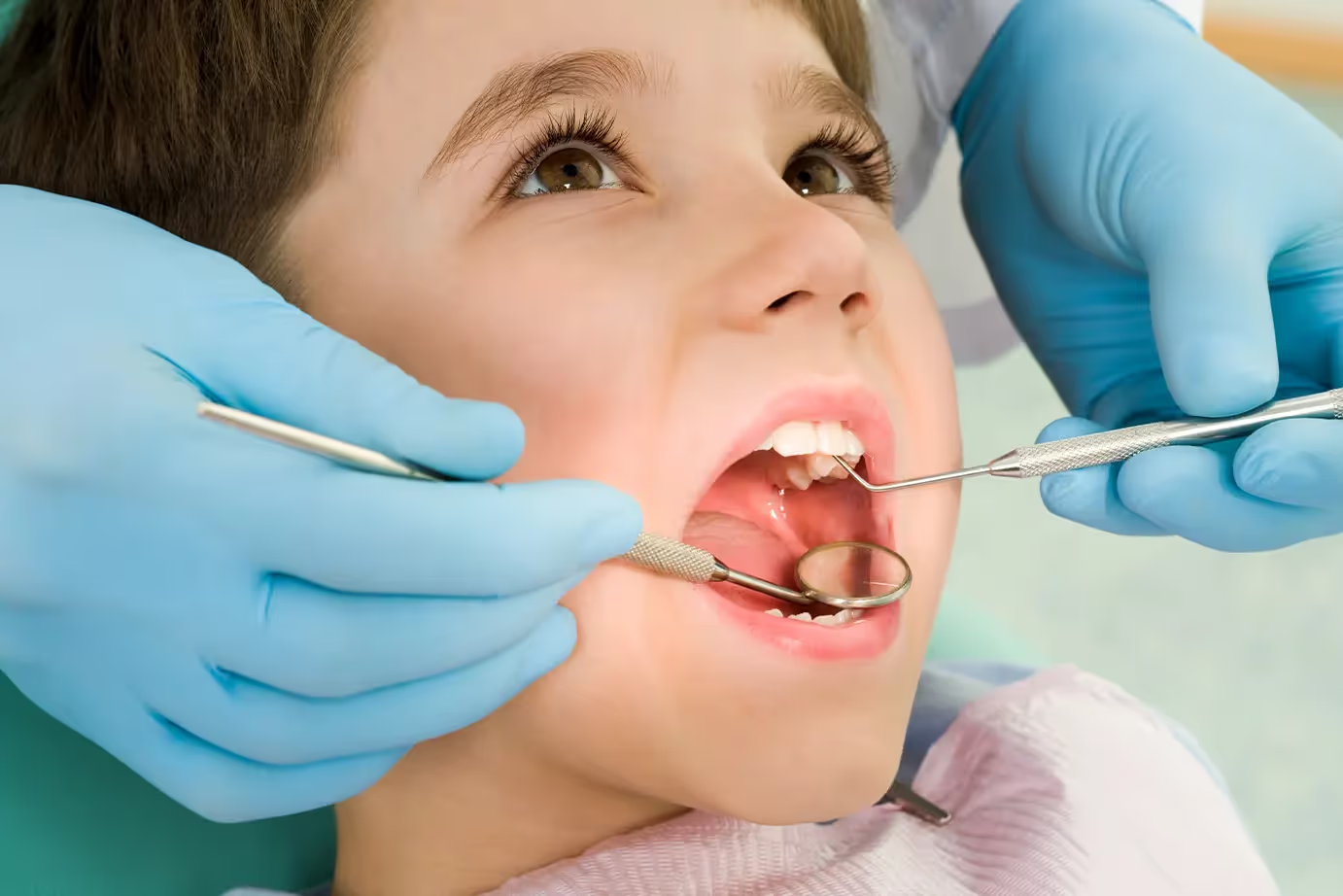Pediatric Treatments Sedation Is Commonly Used For
Several pediatric dental treatments may require sedation, depending on the child's age, the complexity of the procedure, and the child's level of anxiety or ability to cooperate. Some common procedures that may warrant sedation include:
Extensive Dental Treatments
Children who need multiple dental treatments, such as fillings, crowns, or extractions, may benefit from sedation. This allows the dentist to complete the necessary work in fewer visits, reducing the overall stress for the child.
Tooth Extractions
Extractions, particularly of multiple teeth or impacted teeth, can be uncomfortable and may require sedation to ensure the child remains still and relaxed throughout the procedure.
Dental Restorations
Children who need extensive dental restorations, such as those required to treat severe tooth decay or damage, may need sedation to ensure they remain comfortable and cooperative during the procedure.
Dental Trauma
In cases of dental trauma, such as a broken or dislodged tooth, sedation may be necessary to allow the dentist to properly assess and treat the injury without causing further distress to the child.
Special Needs Dentistry
Children with special needs or medical conditions that make it difficult for them to understand or cooperate with dental procedures may require sedation to ensure their safety and comfort during treatment.
Dental Anxiety
Some children experience severe dental anxiety or phobia, making it difficult for them to undergo even routine dental procedures. In these cases, sedation can help the child relax and receive the necessary treatment.
How To Decide When To Use Sedation
It's important to note that the decision to use sedation is made on a case-by-case basis, taking into account the individual needs and circumstances of each child. Your child’s pediatric dentist will discuss the options with you and recommend the most appropriate course of action for your child's specific needs.
Benefits of Sedation Dentistry for Children
Pediatric sedation dentistry offers several benefits for children. It can help reduce anxiety and fear associated with dental procedures, making the experience more comfortable for the child. Sedation can also help children remain still during the procedure, which is especially important for lengthy or complex treatments. This allows the dentist to work more efficiently and effectively, ensuring the best possible outcome for your child's dental health.
Common Types of Sedation Used in Pediatric Dentistry
There are several types of sedation commonly used in pediatric dentistry. The first is nitrous oxide, often referred to as laughing gas, which is inhaled through a mask. The second is oral sedation, where the child takes a prescribed medication orally. The third is IV sedation, administered through a vein. The last is general anesthesia, used for complex procedures or for children who have severe anxiety or special needs.
The Safety of Pediatric Sedation Dentistry
The safety of your child is the primary concern for any pediatric sedation dentist in Kyle. All sedation methods are administered and monitored by trained professionals, ensuring your child's safety at all times. It's important to note that before any sedation method is used, the dentist will review the child's medical history and discuss the process with the parents or guardians in detail.
Preparing Your Child for Sedation Dentistry
Preparation for sedation varies depending on the method used. For nitrous oxide, no special preparation is needed. For oral sedation, your child may need to fast for a few hours before the procedure. For IV sedation or general anesthesia, more detailed preparation is required, and your dentist will provide specific instructions. Remember, open communication with your child about the process can help alleviate any fear or anxiety they may have.
Post-Sedation Care for Your Child
After your child's dental procedure, it's important to follow the dentist's instructions for post-sedation care. This may include limiting your child's activity for a few hours, providing soft foods, and monitoring your child for any unusual symptoms. Your dentist will provide specific instructions based on the type of sedation used and your child's individual needs.
The Role of the Parent in Pediatric Sedation Dentistry
As a parent, your role in the sedation process is crucial. Your understanding and cooperation are key to ensuring a successful and stress-free dental visit. This includes following the dentist's instructions for pre and post-sedation care, as well as providing a comforting presence for your child.
Choosing the Right Pediatric Sedation Dentist
When it comes to your child's dental care, choosing the right pediatric sedation dentist is crucial. Look for a San Marcos pediatric dentist who has specialized training and experience in pediatric sedation dentistry, like Dr. Alex at Kids Tooth Team. It's also important to choose a dentist who makes you and your child feel comfortable, and who takes the time to explain the process and answer any questions you may have.
Schedule Your Child's Dental Visit Today
At Kids Tooth Team, Dr. Alex and her dedicated team understand the unique needs of children when it comes to dental care. As a trusted pediatric sedation dentist in Kyle, Dr. Alex is committed to making your child's dental experience as comfortable and stress-free as possible. If you're in the Buda, TX & South Austin areas and need a friendly, professional dental team for your child, call us today at (512) 523-4774 to schedule an appointment. We're here to answer any questions you may have and look forward to welcoming you to the Kids Tooth Team family.

